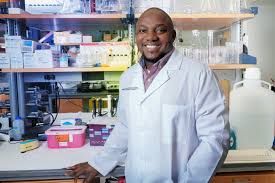
Course Description:
This three-year program provides comprehensive training in medical laboratory medicine, equipping students with the theoretical knowledge and practical skills necessary for careers in clinical laboratories. The curriculum covers a wide range of diagnostic techniques and laboratory procedures, focusing on the analysis of bodily fluids, cells, and tissues to diagnose diseases.
Year 1: Foundations in Medical Laboratory Science
Semester 1:
1. Introduction to Medical Laboratory Science**
- Overview of medical laboratory profession
- Roles and responsibilities of medical laboratory technologists
2. Basic Human Anatomy and Physiology**
- Structure and function of human body systems
3. Basic Chemistry for Medical Sciences**
- Chemical principles and laboratory techniques
4. Laboratory Mathematics and Statistics**
- Mathematical principles and statistical methods in laboratory medicine
5. **Laboratory Safety and Ethics**
- Safety protocols and ethical considerations in laboratory settings
Semester 2:
1. Medical Microbiology I
- Introduction to microbiology, bacteriology, virology, mycology, and parasitology
2. Hematology I
- Basics of blood and bone marrow analysis
3. Clinical Biochemistry I
- Fundamental principles of clinical biochemistry
4. Immunology
- Immune system and diagnostic immunology
5. Instrumentation and Quality Control
- Laboratory instruments and quality assurance methods
Year 2: Intermediate Medical Laboratory Techniques
Semester 3:
1. Medical Microbiology II
- Advanced topics in microbiology, focusing on pathogenic organisms
2. Hematology II
- Advanced techniques in blood analysis and hematopathology
3. Clinical Biochemistry II
- Advanced clinical biochemistry, including enzyme assays and biomarkers
4. Histotechnology
- Techniques in tissue processing and staining
5. Molecular Diagnostics I
- Introduction to molecular biology techniques
Semester 4:
1. Transfusion Medicine
- Blood banking and transfusion practices
2. Cytotechnology
- Study of cell morphology and diagnostic cytology
3. Clinical Chemistry
- Analytical techniques in clinical chemistry
4. Medical Genetics
- Principles of medical genetics and genetic testing
5. *Laboratory Management and Informatics**
- Management practices and informatics in laboratory settings
Year 3: Advanced Applications and Clinical Practice
Semester 5:
1. Advanced Microbiology
- Specialized microbiology techniques and applications
2. Advanced Hematology
- Advanced hematological disorders and laboratory techniques
3. Advanced Clinical Biochemistry
- Specialized biochemical testing and interpretation
4. Molecular Diagnostics II
- Advanced molecular diagnostics techniques
5. Research Methods in Laboratory Medicine
- Research design, methodology, and scientific writing
Semester 6:
1. Clinical Internship I
- Practical experience in a clinical laboratory setting
2. Case Studies in Laboratory Medicine
- Analysis and discussion of clinical case studies
3. Capstone Project I
- Research project planning and proposal development
Year 4: Specialization and Professional Development
Semester 7:
1. Clinical Internship II
- Continued practical experience in a clinical laboratory setting
2. Capstone Project II
- Research project execution and data collection
3. Special Topics in Laboratory Medicine
- Current trends and advancements in laboratory medicine
Semester 8:
1. Clinical Internship III
- Advanced practical experience and specialization
2. Capstone Project III
- Research project completion and presentation
3. Professional Development and Certification Preparation**
- Preparation for professional certification exams and career planning
Assessment:
- Written exams
- Practical assessments
- Research project
- Clinical evaluations
- Final comprehensive exam
Recommended Reading:
- Textbooks:
- "Medical Laboratory Science: Theory and Practice" by Jean Jorgenson Linné
-Clinical Laboratory Science Review" by Robert R. Harr
- Journals:
- Journal of Clinical Laboratory Analysis
- Clinical Chemistry and Laboratory Medicine
This curriculum provides a structured and detailed approach to learning medical laboratory medicine, blending theoretical knowledge with practical experience over three years.
- Teacher: Odoch Kenneth
